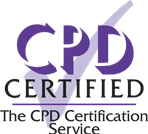
Depression can negatively impact all areas of your life, and when you’ve been living with it for years, it can feel like there’s no way out of it.
Have you had problems with side effects from antidepressants?
Do you feel like your treatment hasn’t helped your symptoms?
You could have Treatment-Resistant Depression (TRD). TRD is depression that doesn’t get better, even with treatment. From a clinical perspective, it is generally accepted that if you have depression that does not improve with at least 2 trials of antidepressants, you have TRD.
Symptoms of treatment-resistant depression are the same as for depression and include (but are not limited to):
- Low mood for an extended period of time
- Lack of enjoyment from hobbies and activities you used to enjoy
- Trouble connecting with friends and family
- Feeling disconnected
- Avoiding socialising
- Feelings of dread or hopelessness about the future
- Disturbed sleep
- Anxiety
- Difficulty concentrating
- Irritability
- Poor short-term memory
Do I Have Treatment-Resistant Depression (TRD) Or Is It Actually Bipolar Disorder?
Do you actually have TRD? It is important to reconsider this diagnosis even before giving rTMS or any other treatment, because bipolar disorders are very often misdiagnosed as treatment-resistant depression. For example, one study in the US found that 40% of people diagnosed with major depressive disorder also had symptoms of subthreshold hypomania. Another study of 43,000 people found more than 7 out of 10 of those who are eligible for randomised controlled trials for antidepressants with “pure major depression” have subthreshold bipolar disorder. In another study of 5,635 people, 16% of those with a major depressive episode fulfilled the criteria for bipolar type I or II. In addition, about a third of those with major depressive disorder convert to bipolar disorder with time.
Treatment for depression normally involves talking therapy and antidepressants. But for those with bipolar disorder misdiagnosed as TRD, the use of antidepressants can make their condition worse in the long run and increase mood cycling. Research has shown that the use of antidepressants, whether short-term or long-term, can worsen bipolar symptoms and be counterproductive, even harmful. With that in mind, we recommend that antidepressants should not be used for bipolar – even with mood stabilisers and antipsychotics. This is in keeping with current guidelines and follows on from the landmark STEP-BD study on bipolar treatment. CBT is not the answer either. Indeed, in the largest and longest study of CBT in bipolar disorders (which excluded rapid cyclers), CBT was found to be no more effective than treatment without it, and may actually make the condition worse.
In short, bipolar disorder is different to depression and requires different treatment. So if you have been diagnosed with depression or TRD, have tried multiple antidepressants but have not improved, or have gotten worse, it may be time to ask if you could have a bipolar spectrum disorder.
A couple of good books to read to help understand this are Why am I still depressed? and Bipolar not so much by Jim Phelps.
Treatment For Subthreshold Bipolar Disorder
The Zamar Protocol ® (Precision guided high-dose thyroid hormones and rTMS protocol) treatment programme combines precision medicine; mitochondrial treatment; High Dose Levothyroxine and; non-invasive treatment rTMS (Repetitive Transcranial Magnetic Stimulation). With a 96.4% remission rate, the programme is giving patients their lives back. Read our recently published articles on our patented treatment here: https://www.mdpi.com/1861888 and https://www.mdpi.com/1832476.
Head over to our Bipolar Clinic to find out more.
If you want confidential and discreet care, please get in touch. If you have any questions or would like to book in for our treatment programme, please call us on 020 7580 4224 and we’ll be happy to help.


